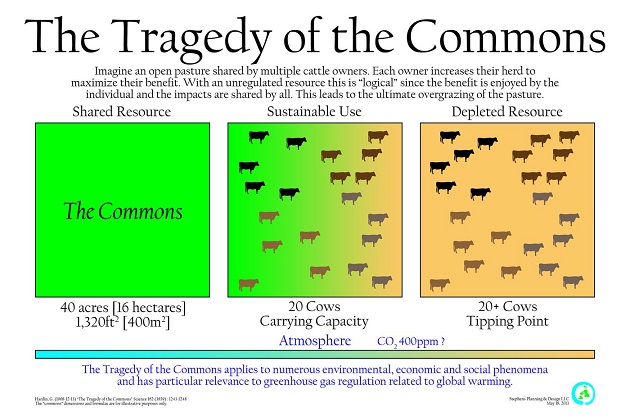
Have you ever been in a chatroom that was completely unreadable?
For me this is one of the most annoying things in the world. It gets so bad at a certain point that there's absolutely no reason to have the chatbox in the first place. If no one can even read what's being said why even allow people to talk? This is a problem that happens more often than not on platforms like Twitch and YouTube streams that have hundreds of thousands of live viewers.
Turns out letting hundreds of thousands of degenerates all share the same chat window is a dumb idea. But even chatrooms with only a couple dozen people can get completely flooded if some annoying kid starts spamming it. I've always been shocked that a solution to this problem has not been implemented.

It's not even a very difficult solve
And yet it is still an interesting problem. A chatroom is a resource, and like all resources they can be abused by bad actors. It also loops back into philosophical economic concepts like The Tragedy of the Commons.

When there are enough common resources everything is fine.
It is often hard to identify a problem when there isn't yet a problem (like lack of RCs on Hive). This is why Tragedy of the Commons issues often get left unchecked for a very long time before people realize that something needs to be done to stop the greedy hogs from stealing everything for themselves.
The examples for such communal resources are numerous. If there are too many cars on the freeway traffic can slow from the speed limit down to 10 miles an hour surprisingly fast. Assume the capacity for a freeways is x cars: traffic can grind to a halt if there are just 20% more than the capacity. It doesn't take a rocket scientist to figure out that once traffic comes to a halt the capacity gets even more overblown and out of control. Even if an accident gets cleared from the freeway minutes after it happens it can still take hours for the traffic it created to clear up. These are downward spiral domino effects, and they are common indeed.
The same concept also applies to running your air conditioner in the summer. If it's a particularly hot day and everyone's air conditioner is set to overdrive it can cripple the entire power grid. Ditto for the Internet. Millennials know better than anyone how badly broadband service used to get throttled during peak hours.
Point being that typically communal infrastructure has a tendency to become exponentially ineffective when too many people are trying to use it at the same time. A chatroom is no different; the stakes are just much lower. So what's the fix?

Rate limit: only x messages per minute allowed.
This is something that a lot of communication protocols already employ to prevent a single user from spamming a communal channel. However this tactic only works when the amount of people using that communal channel is small. It doesn't matter if you can only post 5 messages a minute if a hundred thousand people are all doing it at the same time.
Something I have yet to see is this limitation set on the chatroom itself rather than individual users. It stands to reason that attention is worth more in a room full of thousands of people than it is in one with dozens. I'd like to see a solution similar to how Hive handles these reputational issues.

Talking power
Here on Hive our voting power goes down when we vote and then replenishes automatically. The exact same concept can be applied to a packed chatroom. The more people are talking and taking up space the more energy sending a message would cost. The "price" to speak goes up when overall demand to speak goes up. How much power does a particular user have and how fast does it regenerate? That would be up to the channel moderator. Simple reputation systems could be used as well.
Using Twitch as an example, users in certain channels already have certain ranks and standing within that space. Perks are often given to high ranking users already so the infrastructure for what I'm speaking to already exists. A rank 1 user might only be able to say one thing every 5 minutes while a rank 5 user could have hardly any limitation. Something like this would stop chatrooms from devolving into complete clusterfucks and make people actually think about what they say.
It would also be possible to implement some kind of upvote and downvote situation where if what you said gets upvoted you regain energy faster while downvoted makes it even harder to speak. Something like that could definitely be overkill but I'm just spitballing here.
In fact the entire idea could be overkill.
For example I've rarely experienced this problem in 'normal' atmospheres like Discord or typical forms of social media. It's essentially only a problem for famous people with a zealous fanbase. Still, I believe even if something like this isn't technically necessary in a lot of situations, the incentives in play would force people to think and interact differently in bigger groups. More and more users would start trying to post the "highest quality content" and bring the most value to the table rather than just spamming stupid garbage. Even though these incentives might not be particularly necessary 90% of the time they could still prove useful even when not strictly needed, on a psychological level.
Conclusion
Just a random idea that floats around in my head once and a while. Attention is a valuable resource, and it's annoying when people ruin the party for everyone by talking over everyone else in a relentless spam of nonsense gibber gabber. These same concepts could also be applied to verbal chatrooms as well to an even greater affect (because that really is a situation where only 1 person can speak at a time).
Nobody thinks about air until they run out of it. Such is the case for most communal resources. We don't think about the roads we drive on until they fail us. We don't care about the rainforest until it's gone. When the lights are on we don't consider what would happen if they were shut off for a week. Food for thought.
Posted Using INLEO